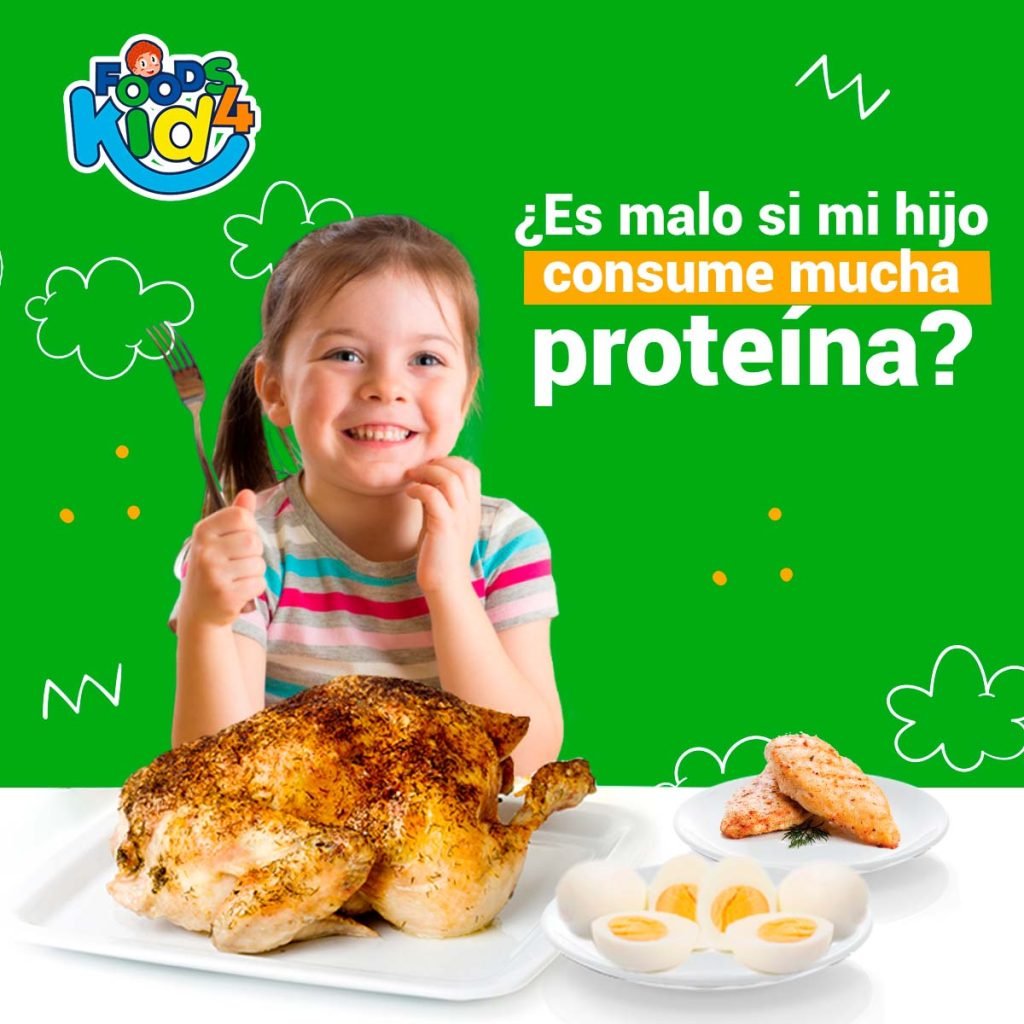
The answer to this question is a resounding yes, all excesses are harmful.
The diet of any child should include all food groups in balance, that is to say; carbohydrates present in vegetables, fruits and whole grains, good fats such as avocado, nuts, olive oil, etc; and proteins of animal or vegetable origin according to the lifestyle of the family should be consumed. But restricting one of them or consuming in excess is counterproductive for the body and the hormones that are in development and growth.
Avoid excesses
Example: For breakfast, whole milk with whole grain cereals for lunch, a plate of legumes and a steak, and for dinner, an omelet.
If this is your child’s typical diet, you are giving him/her an excess of proteins that is not recommended. If this is repeated on a daily basis, it can lead to liver and kidney problems, as these organs metabolize a large part of this protein diet. During this process, toxic substances are formed for the organism, and if there is an excess, the liver and kidneys will not be able to filter them all and, then, a hepatic overload may arise or develop fatty liver and kidney stones. Moreover, since in many cases these proteins are contained in foods with a high content of saturated fats, an excess of proteins is also related to the risk of obesity, high cholesterol and cardiovascular problems.
According to FAO and OMS, these are the general recommendations of proteins per day, for children over one year old, although it is necessary to take into account variations with respect to the context or physical activity that each child carries out…
To avoid it
Keep in mind the following recommendations
In addition, excess protein consumption in childhood is related to increased risk of childhood obesity since all excess calories are converted into fat.
If you want to give your child a different touch at breakfast or snacks you can add Foods4kid quinoa pops alone or combined with nuts, fruits or 60% cocoa chips.